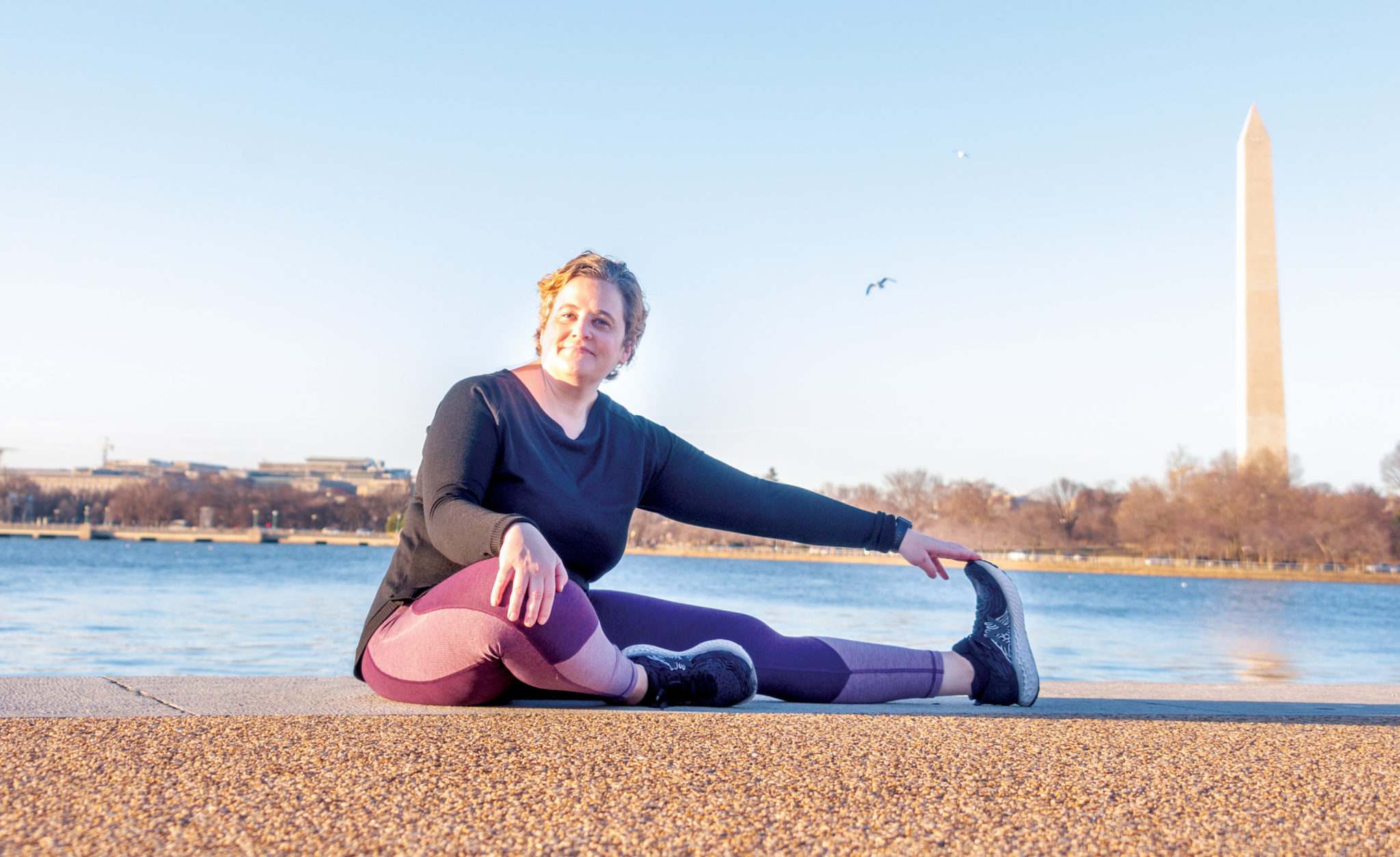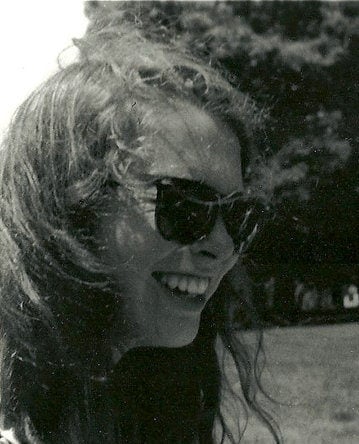In the Before Times, Kaitlyn Fydenkevez saw taking care of her health and fitness as an obligation, something to squeeze in after a long day at the office and before her commute home. “[It was] ‘Okay, did I have a salad at the office?’ and ‘Was I able to tack on, like, 45 minutes to my workday where I stopped by the gym on my way home?” says Fydenkevez, who lives in DC’s Michigan Park. Typically, she made it to the gym only two or three times a week. “I knew it was more important than I was dedicating time to, but I was like, ‘The time is just not there.’ ”
Oh, but little did she know—soon she’d have nothing but time. Come spring 2020 and a deadly virus, the 30-year-old lawyer was working from home. She started walking at lunch to relieve the monotony of spending each day alone in her apartment, and she came to realize that regular exercise was a way to break up the pandemic days that can all too easily run together.
She started being more intentional about fitness. She joined a Zoom gym and now works out four or five times a week. Not only has the last year given her more hours to dedicate to exercise, but she’s also focused on making healthy meals. The result? While Fydenkevez could previously run only about a mile and do zero pushups, she’s running up to five and a half miles, is doing 20 pushups, and has lost 40 pounds.
Record scratch: You may have just read that with a mixture of envy and frustration. After all, it’s hardly the norm for someone to get a health glow-up during a pandemic. Of course, these are folks with the privilege of office jobs that allow them to work remotely, as well as the security to pay for a workout app or buy healthier food. Many people have no job or are exhausted frontline workers or struggling with their mental health or juggling kids in virtual school. But although some of us (understandably) choose to cope via Bling Empire and Costco wine, others are using this extra time to get into the best shape of their lives.
Take Mitch Huber. At the beginning of the pandemic, the 26-year-old research associate could feel himself slipping. “There was a lot of, like, I’m going to Uber Eats lunch and I’m going to make my work pajamas my night pajamas and then make them my work pajamas again,” he says. “I could sense that if I didn’t really put my energy toward something, then I would sort of turn into a loaf.” Where he differs from us is that he decided to train for a 50K ultramarathon. That means running 31.1 miles.
Huber had done a few marathons, but he’d never had the time to train for a race like this. “When my commute is the walk from my kitchen to my bedroom,” he says, “that frees up quite a bit of time.” He trained for 16 weeks, running as much as 45 to 50 miles a week, and in December completed the race on his own along the C&O Canal.
Then there’s Wendy Hamilton. Last summer, she was the heaviest she’d ever been. “I was just sitting around, being nervous, watching the news like everybody else,” says the 52-year-old Congress Heights resident. “And snacking uncontrollably at all hours of the night.” She had long struggled with her weight and was planning to undergo gastric-sleeve surgery for weight loss when the pandemic canceled elective operations.
That’s when Hamilton, a DC Public Schools attendance counselor and a minister, found help through the Yang Gang. She had been Andrew Yang’s director of spiritual and cultural outreach during his presidential campaign, and a group of his supporters had created a fitness-accountability group during the pandemic.
On Twitter, Hamilton would give updates to the group when she walked a mile around the track or spent 30 minutes at the gym. This exercise routine, combined with eating better and practicing intermittent fasting, helped her lose 25 pounds and improve her mental health. “It really has kept me from being in the throes of depression or defeatism,” says Hamilton. “It has given me an opportunity to know that even when you’re in the midst of things that feel out of control, there are things that are within your control.”
In fact, she’s been so inspired by her journey that she decided to run for the DC congressional seat held by Eleanor Holmes Norton. “Changing my physical health around and feeling better and having more energy really revived me and gave me the confidence that I need,” she says. “I’m like, Let’s do it—I’m ready.”
Ally Jenkins has also found that prioritizing her health has helped her cope during the pandemic. Before, she liked going to spin classes such as the ones at the now-defunct group Zengo, but it was hard to squeeze in exercise after commuting from DC to Arlington for her job. She also never wanted to exercise midday. (She refused to use the office-gym shower.) But now that the 43-year-old marketing director is working from home in Cleveland Park, she uses her lunch hour to exercise and break up her day, either going for a walk or riding her DIY Peloton. (She bought a Schwinn and uses the Peloton app for classes.)
Her exercise routine, combined with healthier habits—no more rushed bowls of cereal for dinner or drinks with friends—means Jenkins has lost 20 pounds and has calves like “a soccer player.” Perhaps most important, it has also helped her emotionally: “I find on the days where I don’t work out, I feel a little bit more down in the dumps, a little angrier at the state of the world and where we are. It really does just make me feel so much better.”
While the physical and mental benefits of regular exercise and smart eating are great, such steps also cultivate gratitude. At a time when no one is taking a healthy body for granted, it can feel really good to appreciate and take care of yours, says Fydenkevez.
“On days where I feel bad or anxious about how things are going or when I might get the vaccine or if my family is okay, having a stronger backstop now has been the best,” she says. “To just be like, My body is functioning as best as it can right now—that was a huge favor I did to myself, because when my brain doesn’t feel so good, my body can just focus on that.”
















